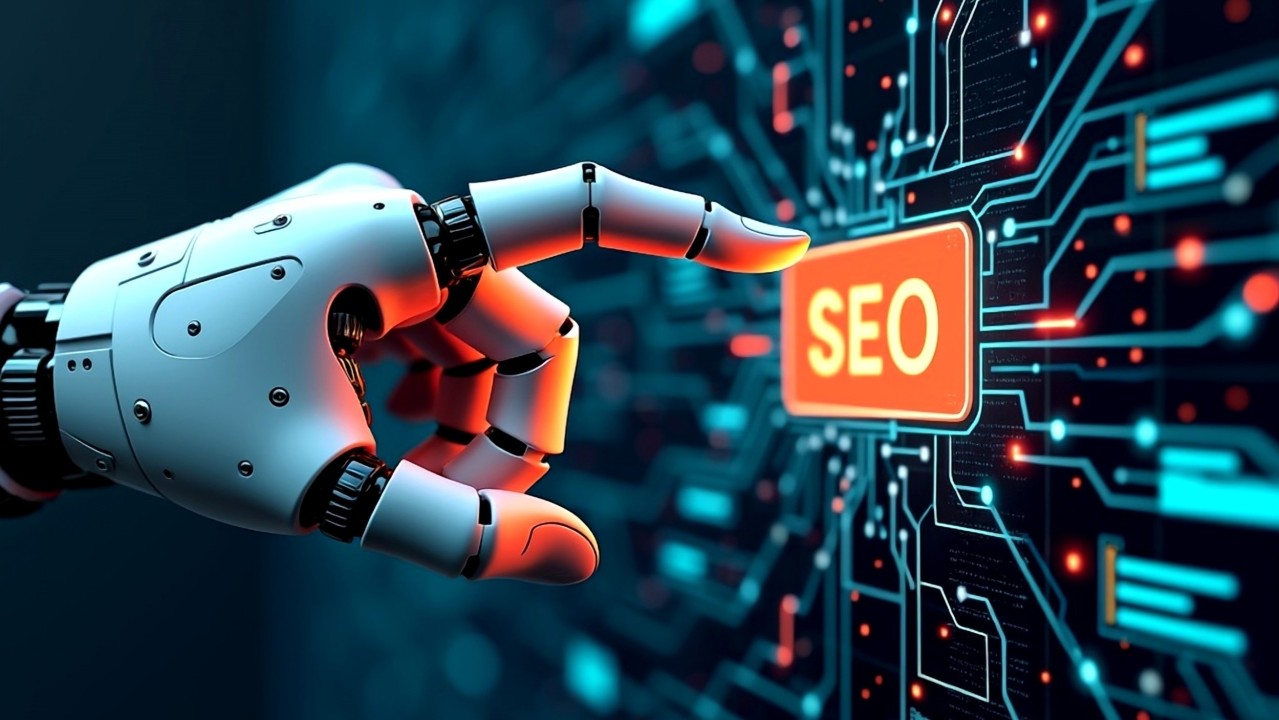News
Harnessing AI for Enhanced Content Strategy: The Future of Digital Marketing
As we navigate through 2024, it becomes increasingly clear that the integration of AI into digital marketing practices is not just a fleeting trend but a cornerstone of the future of content creation, distribution, and optimization.
The Rise of AI in Digital Marketing
The digital marketing landscape has undergone significant changes over the past decade, with AI emerging as a pivotal force in driving these transformations. According to a report by Statista, the global AI market size is expected to surpass $890 billion by 2025, highlighting the rapid adoption and investment in AI technologies across industries.
In the UK, the digital marketing sector has been particularly quick to embrace AI, recognising its potential to unlock new levels of personalisation and efficiency. A survey by Salesforce indicated that 83% of marketing leaders in the UK believe AI is critical to the future of their marketing strategies.
Transforming Content Strategy with AI
Personalisation at Scale
One of the most significant impacts of AI on content strategy is its ability to personalise content at scale. Traditional content personalisation methods often rely on manual segmentation and analysis, which can be time-consuming and prone to errors.
AI, however, can effortlessly analyse vast amounts of data to identify patterns and preferences among individual users. This enables marketers to tailor content more precisely to the needs and interests of their audience, enhancing engagement and conversion rates.
Content Creation and Curation
AI-powered tools have revolutionised the content creation and curation process. Natural Language Generation (NLG) technologies can now produce coherent and contextually relevant articles, reports, and news stories in seconds. While these tools are not replacing human creativity, they significantly reduce the time and effort involved in generating content.
Moreover, AI can curate content by sifting through extensive digital content to find and recommend the most relevant and engaging pieces to audiences, keeping them engaged and informed.
SEO and Content Optimization
Search Engine Optimization (SEO) remains a critical component of any digital marketing strategy. AI is making SEO more effective and efficient by analysing search patterns and predicting future trends. Tools like Google’s RankBrain utilise machine learning to better understand user queries and improve search engine results page (SERP) rankings.
AI also aids in content optimization, suggesting keywords, meta tags, and content structure adjustments that can improve visibility and user engagement.
Predictive Analytics and Decision Making
AI enhances content strategy through predictive analytics, offering insights into future consumer behaviour based on historical data. This allows marketers to anticipate market trends, identify new content opportunities, and make informed decisions about their content strategies.
By understanding what content will resonate with their audience, businesses can allocate their resources more effectively, ensuring that they produce content that is both relevant and impactful.
Challenges and Considerations
While AI presents numerous opportunities for enhancing content strategy, it also raises several challenges. The ethical implications of using AI, including privacy concerns and data security, must be carefully considered. There is also the risk of over-reliance on AI, which could lead to a lack of creativity and homogeneity in content. Furthermore, the initial cost of implementing AI technologies can be prohibitive for small businesses.
The Future of Digital Marketing with AI
As we look towards the future, it is evident that AI will continue to play a crucial role in shaping digital marketing strategies. The next frontier may involve more sophisticated AI capabilities, such as emotion recognition and advanced predictive modelling, which could further personalise user experiences and enhance content relevance. Additionally, as AI technologies become more accessible and cost-effective, small and medium-sized enterprises (SMEs) will also be able to leverage these tools to compete more effectively in the digital marketplace.
In conclusion, the integration of AI into digital marketing represents a paradigm shift in how businesses approach content strategy. By harnessing the power of AI, marketers can achieve a level of personalisation, efficiency, and insight that was previously unimaginable.
However, it is crucial to navigate this new landscape thoughtfully, balancing the opportunities AI presents with the ethical considerations it raises. As we advance, the businesses that will thrive are those that recognise the potential of AI to transform their content strategies, while also ensuring they remain authentic, ethical, and customer-focused in their approach.





The Ultimate Social Media Guide
With the ever-growing power of social media, we use the latest techniques, video, and animation software to craft eye-catching social media assets that make your brand pop. Our designers, wielding Adobe Creative tools, create distinctive animations and graphics to illuminate your brand story and highlight your products or services. Want a unique design? No problem – we also offer bespoke designs to match your brand aesthetic.